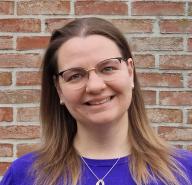 \
&
Contact us
\
&
Contact us
 \
&
Contact us
\
&
Contact us
About the programme
The aim of the European Chips Act, is to bolster Europe’s competitiveness and resilience in semiconductor technologies and applications to support the green and digital transition. The Chips for Europe Initiative, part of the EU Chips Act, aims to reinforce the European semiconductor ecosystem and Europe’s technological leadership and will be implemented by the Chips Joint Undertaking (Chips JU).
The Chips JU, with funding from both Digital Europe and Horizon Europe, will
The Chips JU is a public-private partnership that supports research, development, and manufacturing capacities in the European semiconductor ecosystem.

marie.timmermann@fwo.be
+32 2 550 15 59
Find the contact info on the site of WEWIS
The National Contact Points (NCPs) provide support, guidance, and practical information to potential applicants, helping them navigate funding opportunities and application processes.
The Programme Committee (PC) members represent their country in decision-making about the work programmes, evaluate implementation, and provide strategic input on priorities and calls.
Infosheets contain edited content on aspects related to this programme. They are reviewed at least yearly.
Related links are easy pointers towards external information. We curate the list, but are not liable for the destinations.
Documents contain additional information related to this programme, and are similar to related links.
The MareGraph project, ‘Towards an Interoperable Marine Knowledge Graph’, obtained funding under the Digital Europe topic ‘OPEN-AI – Public Sector Open Data for AI and Open Data Platform’. The project will increase the semantic, technical, and legal interoperability of three selected high-valued datasets (HVDs) all maintained by the Flanders Marine Institute (VLIZ), which is one of the four partners of the project. This will allow the onboarding of essential marine datasets in the Common European Data Spaces. As such MareGraph will provide a structural component in the digital transition of the marine landscape. The numerous impacts of the project will benefit our seas globally in old and new ways to come.